Poet Shara McCallum visits AAHS
Teaching teachers, On March 15th Shara Mcallum met with english teachers in the library to give them tips on teaching poetry. She held two sessions with teachers answering their questions.
March 22, 2022
Author of six books and hundreds of poems, Shara McCallum started her life in Jamaica. Born to a Jamaican father and Venezuelan mother, McCallum migrated to America when she was young.
“My father died shortly after I came [to the U.S.] with my grandparents. I was not with my parents: both of my parents stayed in Jamaica. My mother joined us a year later in the U.S.,” McCallum said.
McCallum claims the struggles in her younger years were what drew her to poetry.
“I suppose many things draw you into writing. I was without my parents. I had lost my father at that point. I think it is normal for people in the face of those things to put themselves back together. You become different. I suppose every moment of our lives we are meeting certain things that change the trajectory of who we are,” McCallum said.
Ten years after McCallum migrated, she went to college. She always had a connection with writing and had been drawn to it to help her cope.
“I’ve always loved poetry, always written, always read it but never thought of being a poet, never thought anybody like me could be a poet. I was introduced to contemporary poetry in a workshop and a creative writing class. I was already an English major by then. I think it just really surprised me that every single time I sat down to write, all I would do is go back to Jamaica, my childhood, and that moment of rupture,” McCallum said.
McCallum’s first two books, “The Water Between Us” and “Song of Thieves,” are largely based on her childhood and the experiences she had at a young age, migrating to America.
“My first [book] to be very much about that experience of my childhood, my migration, my family story and really thinking through poems of what is lost…My first two books I wrote in my 20s. I was finished with those books, they were published before I was 30. That’s young for a poet,” McCallum said.
At this point, McCallum started her family. She met her husband when she was 21 turning 22 and she just started to become a poet. McCallum says that he has been by her side the whole way, as well as the rest of her family, who have helped her through her journey.
“Enduring support for me is my husband. He’s been with me the whole time and so has certainly all of my family though, all of the family that are still here and the family that are gone. They continue to be much of the reason why I write,” McCallum said.
After the publication of her first two books, McCallum moved to PA and had two daughters. Starting a family put her writing process on hold.
“When I mention those shifts in identity, becoming a mother was a profound shift in identity for me. The role of motherhood is one that I continue to navigate as a form of identity that forces you to constantly shift and that changed my writing. Practically speaking, I was exhausted. The sleep deprivation that I experienced for four years straight was so profound I was lucky to be able to go to my classes and hold the thought in my head to deliver a cohesive sentence, much less write something,” Mccallum said.
As well as writing, McCallum teaches poetry at Penn State University. She never planned on being a teacher, but she found her passion for it in graduate school.
“I wouldn’t have known that I wanted to teach because it wasn’t something that I considered as a vocation until graduate school. I didn’t know anybody who was a professor. I was the first person to go to university, so it’s not like I come from an academic family, so it was really being introduced in graduate school. I went to study poetry, and one of the things you do when you’re studying as a graduate student is you teach. It’s an exchange of labor for tuition essentially that’s the model of graduate education in the U.S. I loved it; that’s when I realized I love teaching,” McCallum said.
McCallum plans to keep on teaching until she no longer considers it her passion.
“I feel that love still, and it’s been since 1995 that I’ve been teaching. I haven’t wavered in my love of it, and I hope that I will leave the profession before I do. My hope for myself is that I’ll be able to identify the right moment when I no longer feel that enthusiasm. I think students deserve to have people in front of them who love them and just love their art,” McCallum said.
McCallum is drawn to poetry opposed to any other form of writing. She says that there are a number of things that drew her to poetry and claims that she likes poetry because of its intimacy.
“The intimacy of a poem to me is far greater in the other genres. There are so many echoes and reverberations. I feel those things more keenly in the space of reading a poem than I do in a novel, which I love. I look at imagery and music in poetry,” McCallum said.
McCallum likes to think of poetry as a metaphor, writing metaphorically into her poems and searching for metaphors in the poems she reads.
“A poem is always trying to become a metaphor. In a story, a chair might just be something just that the characters in the story are sitting on and in a poem the chair is immediately going to start to be transformed. There’s the literal image of the chair, and there’s the fact that we’re going to make that symbol and that action of metaphor. The transformative action is something I really love about poetry,” McCallum said.
McCallum recently published her new book of poems: “No Ruined Stone”. Her book is a second account of history about Robert Burns traveling to Jamaica. In reality, Burns did not travel to Jamaica; however, her poems are based on if he would have. Burns is a poet that is still known today and still read today. McCallum says that even if the audience doesn’t directly know Burns, they still have run into some of his work. The book “Of Mice and Men” was based on a Burn’s poem, for example.
“Why was I attracted to this? I had to read Burns and loved his work as an undergraduate. I loved his poetry before I even thought of being a poet. When I was in Scotland in 2015 and I learned that he almost went to work on a slave plantation in Jamaica, this didn’t match up with the kind of revolutionary character that comes through his poems. His poems are very much about equality and the rights of man. So I wrote an account of the past imagining an alternate account. What would have happened if he had gone to Jamaica?” McCallum said.
The first half of the book is from Burn’s point of view, his words as if he was in Jamaica in the 1800s. The second part being from the point of view of his granddaughter, a mixed-race black woman.
“It’s a narrative about the emissions of the past, the ways that history wants to create heroes of people and their lives are far more complicated. It’s about the history of slavery and miscegenation,” McCallum said.
As a teacher of poetry, McCallum believes that anyone is capable of being a poet or writing poetry. If someone has any aspirations of becoming a poet, they simply need to immerse themselves in it.
“Read and write. You can’t do something if you’re not familiar with its possibilities. Everybody has the potential to write poetry and to be a poet. I believe that, but in order to practice an art you have to familiarize yourself with it. Writing is a response to what you have read. Being a writer means that you are a reader. Start by reading and respond to what you are reading. Read the poems to read lots of poems,” McCallum said.

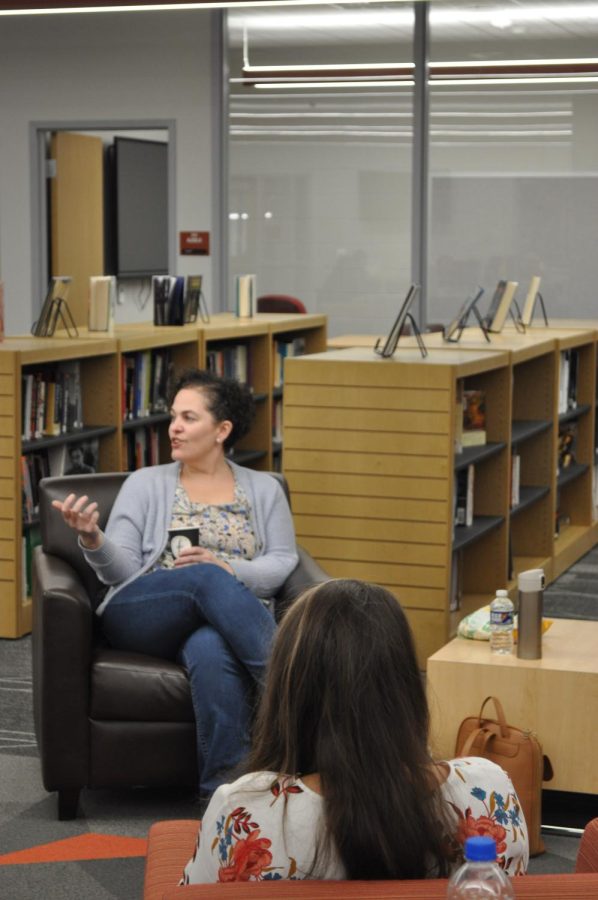
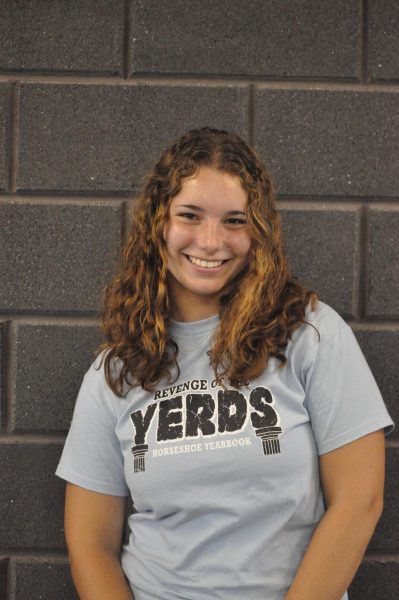
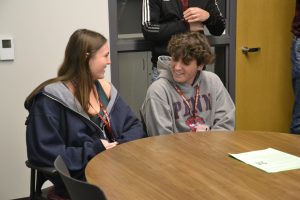
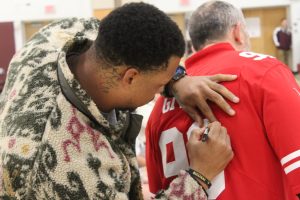


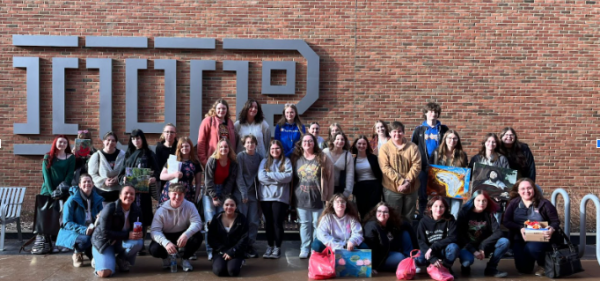
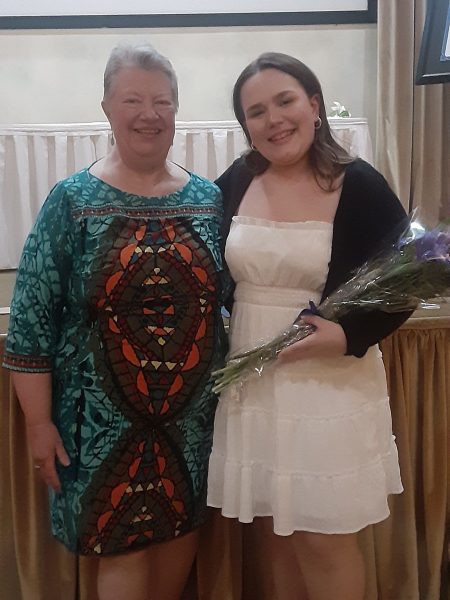
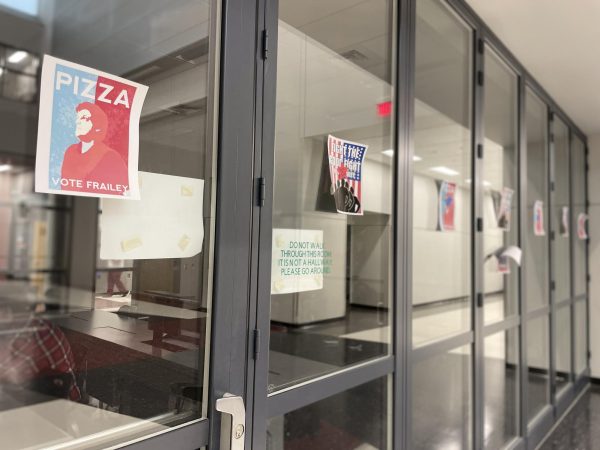
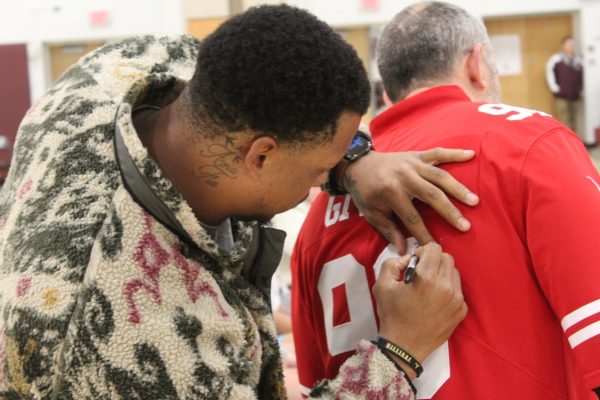
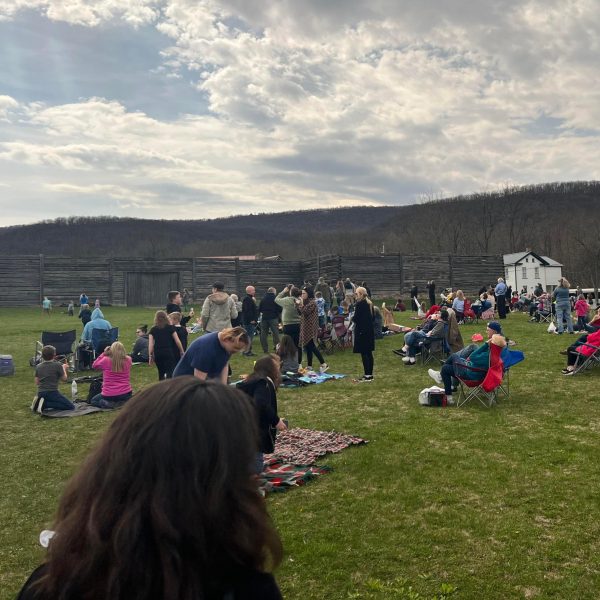
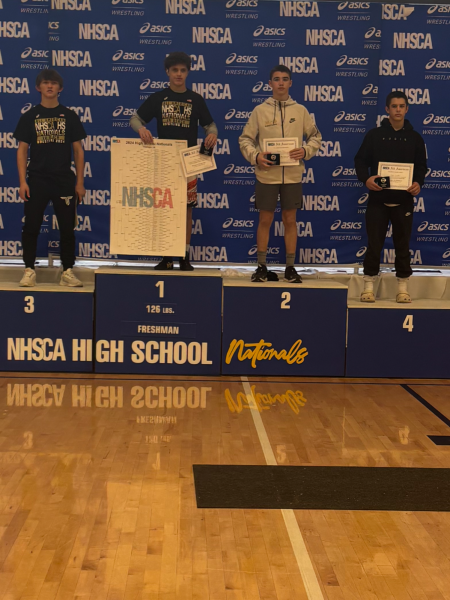
![Dedicated. Teachers who live far away commute for at least an hour to work each day. [Made with Canva]](https://aahsmountainecho.com/wp-content/uploads/2024/04/teacher-commute-picture-424x600.png)
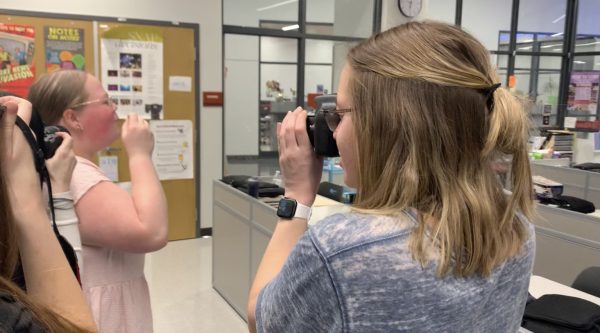

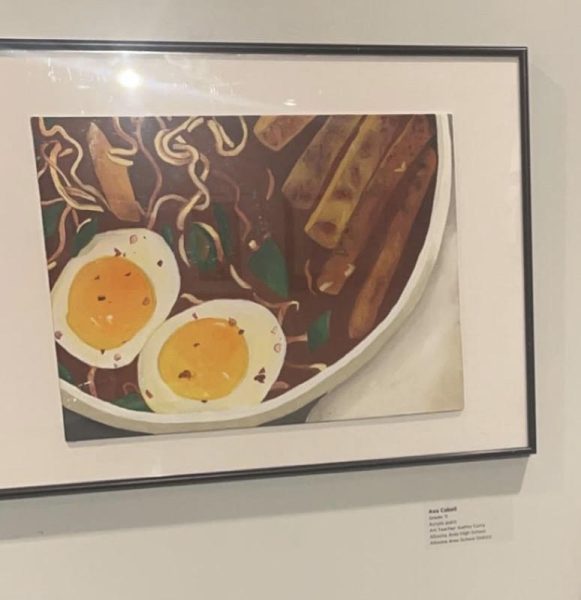
Bron Mosley • Mar 28, 2022 at 10:48 am
Good Job:)